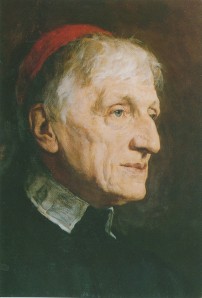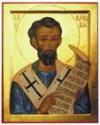Taken from a longer piece on Rocco Palmo’s blog, Whispers in the Loggia:
With the first ordinariate already established in England, and the groundwork well in progress for similar jurisdictions in Canada and Australia, the venture’s Stateside edition promises to be a unique and especially intense enterprise given both the country’s (and, indeed, the communities’) geographic spread, a fairly think “alphabet soup” of the various Continuing Anglican groups involved, and a facet particular to American Catholicism: the long-standing presence of Anglican Use priests and faithful, who crossed the Tiber long ago, but have been able to maintain an adapted version of the Book of Common Prayer for their worship, which was approved by the US bench and confirmed by the Holy See in 1983 for rites in the States alone.
(By contrast, Anglican clergy and laity received elsewhere have been limited to celebrating the standard Roman liturgy and, all around, not been able to keep their traditions or communities intact. That’ll soon change, however — a key feature of the Anglicanorum provisions, work on a global liturgy for the ordinariates rooted in the Anglican patrimony is already underway, with some estimates tipping its release for as early as next year.)
As things stand, while several hundred Episcopalians and others coast-to-coast have indicated their desire to make the move, the presence of the Anglican Use parishes provides the impending national structure with a well-established set of “hubs” from the outset to help ease the transition. At the same time, the veteran communities’ presence creates a scenario that won’t be experienced with any of the other national jurisdictions: a divergence of experience between long-standing and freshly-arrived Anglo-Catholic groups, and the parts each will play in the wider picture of the new dynamic.
On a related note, while the lone ordinary already appointed, Msgr Keith Newton — the former Church of England “flying bishop” ordained a Catholic priest in January on the same day he was named leader of the English and Welsh structure named for Our Lady of Walsingham — every indication to date has been that his soon-to-be US equivalent is already a Catholic priest of some years’ standing. And elsewhere, another consideration unique to the States has been rumored about — namely, given the Episcopal Church’s 2001 covenant with the Evangelical Lutheran Church in America which joined the two denominations in full communion, that American Lutherans wishing to be received as Catholics could be grandfathered into the set-up’s Stateside incarnation.
Likewise an issue will be where a home-turf ordinariate will be headquartered. Though practically every nationwide ecclesial organ has its base in Washington or New York essentially by default, the most widespread presence of Catholic Anglicans and Continuing Anglicans alike has long been in Texas. With Episcopalian communities numbering in the high hundreds there already in meetings and preparations for the starting gun, the Lone Star State is likewise expected to bring the largest number of newcomers to the venture, and while a handful of communities set to move dot the Northeastern landscape, the scheme’s take-up in the nation’s historic Catholic “hub” has been fairly slim by contrast.
And lastly, the timetable on which the Stateside ordinariate’s first paces will be accomplished bears watching, even if — simply for logistical reasons born of geography and the diversity of the groups involved — it likely won’t equal the warp-speed with which the Walsingham group has entered the fold.
Following the reception of the English venture’s founding three ex-bishops on New Year’s Day and their ordination to the priesthood a fortnight later, the remainder of the 950-some members of the UK branch’s “first wave” came into full communion during Holy Week, with their clerics being ordained to the diaconate during these Easter days, and most set to receive priesthood at Pentecost. (On a side-note in a unique scenario reflecting the Catholic ban on priests holding public office, a non-stipendiary CofE priest who serves as a judge became Walsingham’s lone permanent deacon last weekend.)
While, on its own, the founding batch of English travelers made for the largest Easter class of receptions the British church has seen in decades, an even larger group is expected to undertake the journey when the first Ordinariate’s second intake begins toward year’s end.















Rocco Palmo comments on Ordinariates
15 05 2011Taken from a longer piece on Rocco Palmo’s blog, Whispers in the Loggia:
With the first ordinariate already established in England, and the groundwork well in progress for similar jurisdictions in Canada and Australia, the venture’s Stateside edition promises to be a unique and especially intense enterprise given both the country’s (and, indeed, the communities’) geographic spread, a fairly think “alphabet soup” of the various Continuing Anglican groups involved, and a facet particular to American Catholicism: the long-standing presence of Anglican Use priests and faithful, who crossed the Tiber long ago, but have been able to maintain an adapted version of the Book of Common Prayer for their worship, which was approved by the US bench and confirmed by the Holy See in 1983 for rites in the States alone.
(By contrast, Anglican clergy and laity received elsewhere have been limited to celebrating the standard Roman liturgy and, all around, not been able to keep their traditions or communities intact. That’ll soon change, however — a key feature of the Anglicanorum provisions, work on a global liturgy for the ordinariates rooted in the Anglican patrimony is already underway, with some estimates tipping its release for as early as next year.)
As things stand, while several hundred Episcopalians and others coast-to-coast have indicated their desire to make the move, the presence of the Anglican Use parishes provides the impending national structure with a well-established set of “hubs” from the outset to help ease the transition. At the same time, the veteran communities’ presence creates a scenario that won’t be experienced with any of the other national jurisdictions: a divergence of experience between long-standing and freshly-arrived Anglo-Catholic groups, and the parts each will play in the wider picture of the new dynamic.
On a related note, while the lone ordinary already appointed, Msgr Keith Newton — the former Church of England “flying bishop” ordained a Catholic priest in January on the same day he was named leader of the English and Welsh structure named for Our Lady of Walsingham — every indication to date has been that his soon-to-be US equivalent is already a Catholic priest of some years’ standing. And elsewhere, another consideration unique to the States has been rumored about — namely, given the Episcopal Church’s 2001 covenant with the Evangelical Lutheran Church in America which joined the two denominations in full communion, that American Lutherans wishing to be received as Catholics could be grandfathered into the set-up’s Stateside incarnation.
Likewise an issue will be where a home-turf ordinariate will be headquartered. Though practically every nationwide ecclesial organ has its base in Washington or New York essentially by default, the most widespread presence of Catholic Anglicans and Continuing Anglicans alike has long been in Texas. With Episcopalian communities numbering in the high hundreds there already in meetings and preparations for the starting gun, the Lone Star State is likewise expected to bring the largest number of newcomers to the venture, and while a handful of communities set to move dot the Northeastern landscape, the scheme’s take-up in the nation’s historic Catholic “hub” has been fairly slim by contrast.
And lastly, the timetable on which the Stateside ordinariate’s first paces will be accomplished bears watching, even if — simply for logistical reasons born of geography and the diversity of the groups involved — it likely won’t equal the warp-speed with which the Walsingham group has entered the fold.
Following the reception of the English venture’s founding three ex-bishops on New Year’s Day and their ordination to the priesthood a fortnight later, the remainder of the 950-some members of the UK branch’s “first wave” came into full communion during Holy Week, with their clerics being ordained to the diaconate during these Easter days, and most set to receive priesthood at Pentecost. (On a side-note in a unique scenario reflecting the Catholic ban on priests holding public office, a non-stipendiary CofE priest who serves as a judge became Walsingham’s lone permanent deacon last weekend.)
While, on its own, the founding batch of English travelers made for the largest Easter class of receptions the British church has seen in decades, an even larger group is expected to undertake the journey when the first Ordinariate’s second intake begins toward year’s end.
Share this:
Related